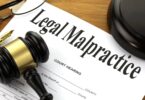Foreclosure and mortgage laws affect everyone. Whether you are a homeowner, a builder, or a lender, understanding how these laws work is essential for a successful financial future. In this article, we will take a comprehensive look at the different foreclosure and mortgage laws for an in-depth understanding of how to protect yourself and your investments. Learn how to stay compliant and keep your finances in good standing with the help of foreclosure and mortgage laws.
1. Overview of Foreclosure & Mortgage Laws
When it comes to foreclosure and mortgage laws, it can be difficult to make sense of the myriad regulations and complex nature of the legalities involved. From legislation to industry standards to common practices, understanding all the aspects of a foreclosure and mortgage are often overwhelming. But there are some basic concepts that you should be aware of and understand if you are interested in understanding the laws governing foreclosures and mortgages.
- The Definition of Foreclosure: Broadly speaking, foreclosure is the process of a lender taking ownership of a property due to the borrower failing to make payments to the lender. The foreclosure process typically begins with the lender filing a public notice of default, in which the borrower has typically been given a certain amount of time to pay back the mortgage debt.
- Mortgage Laws: Mortgage laws are the major source of regulation for lenders and borrowers alike. These laws restrict and set standards for the mortgage process and provide the bank or lender with a level of protection and assurance in the event that the borrower defaults on their loan. Generally, mortgage laws are meant to protect both parties by ensuring that the borrower has been given ample time and opportunity to properly make their payments and that the lender has all their rights and responsibilities.
- State Regulations: Depending on where the property is located, state laws can influence the foreclosure process. For example, some states require lenders to contact borrowers and try to negotiate a settlement or mediation before foreclosure can take place. In addition, some states require lenders to provide borrowers with detailed notices prior to foreclosure.
- Mortgage Companies: In certain cases, a mortgage company may be hired by the lender to conduct and oversee the foreclosure process on the lender’s behalf. Mortgage companies may also help to coordinate with the borrower to come up with a payment plan, or try to help the borrower modify their loan. However, it is important to note that the mortgage company is not responsible for the payment of the loan, but instead is responsible for ensuring that the foreclosure process is properly conducted.
Foreclosure and mortgage laws can be complex and difficult to understand, but with a comprehensive understanding of the various aspects, you can be better equipped to navigate them. Knowing the legalities and regulations governing foreclosures and mortgages can help provide clarity and confidence when dealing with finances.
2. Types of Foreclosure Proceedings
Law of Foreclosure and Mortgage
Foreclosure is a legal process by which a lender seizes and sells a mortgaged property to repay an unpaid debt. Mortgages are, by nature, difficult contractual arrangements for lenders and borrowers, so having a comprehensive understanding of the laws governing these arrangements is essential for both parties.
In most states, there are two primary —judicial and non-judicial. A Judicial foreclosure is meshed in court proceedings and is typically initiated through a lis pendens, a type of lawsuit filed by a lender in court to obtain a judgment of foreclosure. Non-judicial foreclosure proceedings on the other hand, may arise from voluntary agreements—like a deed of trust—directing the sale of a mortgaged property in the event that a borrower defaults on their loan payments.
State laws governing foreclosures and mortgages can vary, so a comprehensive understanding of the process and the available options is key. Here’s a quick overview of the two primary :
- Judicial Foreclosure: A judicial foreclosure is initiated through a court process to obtain a judgment of foreclosure. In a judicial foreclosure, a lender will file a lawsuit in court against the borrower to recover the mortgaged property and unpaid debt. The court grants a judgment of foreclosure and the property is sold to repay the debt. This process generally occurs when lenders find themselves unable to obtain a repayment agreement from the borrower.
- Non-Judicial Foreclosure: Non-judicial foreclosure is carried out in accordance with the terms set forth in a voluntary agreement, such as a deed of trust, and is often initiated by lenders. In a non-judicial foreclosure proceeding, lenders can repossess the property without taking the case to court. In most cases, lenders must provide notice to the borrower before proceeding with the repossession. The property is then sold at auction to the highest bidder in an effort to satisfy the borrower’s debt obligations.
It’s important for both borrowers and lenders to know the legal foreclosure process for each state, and to have a comprehensive understanding of their commitments under any voluntary agreements. Doing so will ensure that all parties are properly informed and their rights are being respected.
3. How to Avoid Foreclosure
Negotiate With Your Lender: If you are unable to make payments on your mortgage, reaching out to your lender can help you avoid foreclosure. Speak with them about your current financial situation and ask for a temporary solution that can reduce any fees or costs associated with late payments. You could also inquire about an extension or reinstate your loan.
Live In Your Home Rent-Free: If foreclosure is inevitable, you can opt to live in your home rent-free until it is sold. This strategy only works if you have no debts owed, such as a second mortgage or a home equity loan. By living in the home, you can have greater control over its maintenance and condition until it can be sold.
Speak To A Housing Counselor: If you are concerned about being able to makeback payments, speak to an independent housing counselor to figure out the best options.Credit counselors can also provide advice on improving credit and filing for bankruptcy if it is necessary.
The Foreclosure Process:
- The lender notifies the borrower that their loan is in default.
- The lender requests payment from the borrower.
- The lender sends a Notice of Default to the borrower.
- The lender may file a lawsuit against the borrower in court.
- If the court orders a foreclosure, the property is put up for auction.
- If the property is sold at auction, the lender obtains the proceeds.
Work With Details: There are many details to consider when dealing with foreclosure; understanding your rights, liabilities, foreclosure laws in your area, and potential solutions are essential. Knowing the process and related laws can help you to work with your lender to devise an agreement that works for everyone. Additionally, discussing the process with a lawyer specializing in real estate and foreclosure law can give you a better understanding of what to expect.
4. Mortgage Law & Regulations
What Is Foreclosure?
Foreclosure is a legal process a lender may pursue to reclaim property when a borrower defaults on their mortgage payments. It’s an essential part of the mortgage process in many jurisdictions and typically begins after a default, followed by a notice of default, and possibly a notice of sale. The foreclosure process in the U.S. varies by state, but the basic steps of foreclosure are the same in most states.
Mortgage Laws & Regulations
Mortgage laws and regulations vary substantially by state, and it is important to understand the relevant legislation when dealing with mortgage disputes. Generally, lenders must meet the following standards before they can foreclose on a property:
- The current holder of the mortgage has the right to foreclose.
- The borrower must be in default on their mortgage payments.
- The lender must give proper notice of the intent to foreclose.
- In some states, the lender must go through a court-ordered process.
- The lender must adhere to local laws regarding foreclosure.
The U.S. Department of Housing and Urban Development provides resources such as a borrower’s rights and responsibilities, how to find assistance with foreclosure prevention, and how to defend against foreclosure. It is important to understand the laws in your state and to contact an experienced attorney if you are facing foreclosure proceedings.
Foreclosure Options & Prevention Strategies
Foreclosure can have a detrimental impact on your credit, so it is important to work with your lender and explore all available options. Borrowers facing foreclosure may be able to pursue loan modification, forbearance, or repayment plans. Refinancing is another option if you have enough equity in your home. There are also government programs that may assist with mortgage payments, such as the Home Affordable Modification Program and the Making Home Affordable Program. If you are facing foreclosure, it is important to seek legal assistance, as certain states offer protections to homeowners.
Foreclosure Processes & timelines
The foreclosure process varies significantly by state. Generally, lenders must provide borrowers with the required notices and allow a certain amount of time before filing foreclosure. In some states, the foreclosure process needs to go through the courts, while other states allow for out-of-court proceedings. The timeline for the foreclosure process typically depends on the state law, the foreclosure method used, any delays in the process, and the borrower’s response. It is important to contact an experienced attorney if you are facing foreclosure to understand your rights and the timeline for foreclosure proceedings.
5. Federal & State Regulations for Mortgage Loans
5. Secured Loans and Foreclosures Laws:
The federal and state regulations that govern mortgage loans are complex and ever-evolving. It is imperative that any individual contemplating a mortgage loan, or any participant within the mortgage industry, understand the applicable foreclosure and mortgage laws that are in place. Below is a brief overview of the primary federal and state laws that apply to foreclosures and mortgage loans.
Federal Laws & Regulations:
- The Truth in Lending Act (TILA) was designed to provide protection to borrowers against inaccurate representations made by lenders, as well as to ensure full disclosure of all terms and conditions in consumer loans and mortgage contracts.
- The Real Estate Settlement Procedures Act (RESPA) is a consumer protection law that regulates the ways in which lenders and other service providers in the real estate industry may offer and receive payments for services related to residential mortgage loans.
- The Equal Credit Opportunity Act (ECOA) was designed to prohibit credit discrimination and ensure that lenders could not discriminate against applicants on the basis of gender, race, marital status, color, national origin, religion, age, receipt of public assistance or other characteristics.
- The Fair Housing Act (FHA) was designed to ensure that all individuals could obtain housing without facing discrimination based on certain characteristics.
- The Home Mortgage Disclosure Act (HMDA) was introduced to protect against discrimination in the provision of mortgages and ensure that lenders are not engaged in predatory lending or other discriminatory practices.
State Laws & Regulations:
- In addition to the federal laws and regulations, individual states may also enact foreclosure and mortgage regulations specific to their state. State laws typically cover areas such as loan origination, licensing requirements for lenders, rate restrictions, consumer protection, foreclosure procedures, and bankruptcy.
- Each state has its own laws and regulations governing mortgage loans. It is important to be familiar with the relevant laws of the state in which the loan is being originated and/or serviced.
- Many states have instituted foreclosure regulations that require lenders to provide homeowners with more notice and more time before a foreclosure is initiated. Some states may even require lenders to enter into mediation with the borrowers before initiating foreclosure actions.
It is essential for individuals involved in foreclosures or mortgage loan transactions to have a comprehensive understanding of the applicable federal and state regulations regarding those matters. Individuals unfamiliar with the laws, regulations and procedures for foreclosure, mortgage loan origination and servicing should seek the assistance of an experienced mortgage professional.
6. Navigating Foreclosure & Mortgage Laws
Navigating foreclosure and mortgage laws can be difficult and intimidating, but by understanding the complexities of the law and taking the time to become knowledgeable, you can ensure that you’re in the best position possible to regain control over your financial situation. Here is a comprehensive overview of the most important aspects of foreclosure and mortgaging laws to know.
- Know Your Rights: Many homeowners are unaware of the rights given to them by the law. Before proceeding with any further action, you should always be aware of your rights as a homeowner, including the right to a judicial hearing and the right to consensual foreclosure.
- Understand Foreclosure Process: Foreclosure is a legal process in which a lender attempts to recover debt by repossessing and selling the property. Knowing the foreclosure process can help you make informed decisions on how to best protect your interests.
- Learn About Your Mortgage Options: If you’re considering taking on a mortgage, it’s important to understand the different types of mortgage products available on the market. From fixed-rate and adjustable-rate mortgages to interest-only loans and reverse mortgages, make sure to learn about the different products so you’re able to make the best decision for your situation.
- Know Your Mortgage Loan Terms: Reading through the mortgage loan terms is an important step when considering any mortgage product. Make sure you’re informed of any penalties, fees, and other important information that can cost you extra money if you’re not careful.
- Consider Hiring an Attorney: When dealing with foreclosure and mortgage laws, you may want to consider hiring an attorney who has experience in these areas. Having a professional on your side can help ensure that you get the legal assistance you need.
By taking the time to understand foreclosure and mortgage laws, you’ll be in a better position to handle any situation that may arise and make informed decisions with regards to your mortgage and financial situation. With this comprehensive understanding of the law, you’ll be able to navigate the foreclosure and mortgage process with confidence.
7. Steps to Mitigate Financial Risk Associated with Foreclosure & Mortgage Laws
If you’re a homeowner or a real estate investor, it’s important to be aware of the legal landscape pertaining to foreclosure and mortgage laws. Failing to do so could result in significant financial risk.
This article provides a comprehensive understanding of foreclosure and mortgage laws, with the aim of helping you make informed decisions and mitigate your financial risks.
1. Foreclosure Notices
When owners fail to make their mortgage payments, the official lender may sent out a notification of default. This is known as a ‘foreclosure notice’, and it informs the recipient that they have lost their right to the property and must vacate it within a certain amount of time.
2. Loss Mitigation
In some instances, losing a property to foreclosure does not necessarily mean that the mortgage debt will be fully forgiven. The key to minimizing the financial damage of foreclosure and mortgage laws is to consider loss mitigation options. This might involve creating a modified repayment plan or engaging in loan restructures with the lender.
3. Mortgage Loan Modifications
A mortgage loan modification can be used to reduce monthly payments and make the loan more affordable. The terms and conditions of the loan may be modified, such as by increasing the loan term, lowering the interest rate, or reducing the principal balance. Lenders are more likely to agree to modifications if the borrower offers an acceptable repayment plan.
4. Short Sales
Short sales are another option that allow borrowers to avoid foreclosure and its financial consequences. In a short sale, owners willingly try to sell their property for less than the full amount owed. The lender may forgive the portion of the loan that is unpaid. It is important to note that eligible properties must be owner-occupied, the borrower must be experiencing financial hardship and the loan must be in a state of default.
5. Refinancing
Refinancing is an option for reducing the loan amount and interest rate. It can be a great solution to avoid foreclosure and is available to those with good credit. The goal of a refinance is to secure more favorable loan terms. The borrower must pay closing costs, but it can be an effective way of reducing the financial strain of a mortgage.
6. Bankruptcy
In some cases, filing for bankruptcy may be a viable option. It is important to differentiate between ‘chapter 13’ and ‘chapter 7’ bankruptcy, as each one works differently. Chapter 13 bankruptcy allows homeowners to keep their property by agreeing to a repayment plan, while chapter 7 allows borrowers to discharge their mortgage debt without paying anything.
7. Proper Legal Representation
It is advisable to seek legal advice in order to protect your rights under foreclosure and mortgage laws. You can hire an attorney to represent you in negotiations with the lender or to file for bankruptcy protection. With proper legal representation, you can get the best outcome and mitigate financial risk associated with foreclosure laws.
8. Strengthening Protection for Homeowners
Securing a Home
- Exploring different types of loan security instruments
- Understanding the differences between mortgaging and foreclosure
- Knowing the rights and obligations of all parties involved in a mortgage agreement
With tighter restrictions arising from the COVID-19 pandemic, homeowners now need more protection than ever before. Understanding the different types of loan security instruments and their respective regulations surrounding foreclosures and mortgages can be daunting. But having a comprehensive knowledge of them helps ensure that home and property owners stay secure in their homes.
Perspectives on Foreclosures
Foreclosures have received increased attention in the past few years, with widespread criticism being directed to lenders for taking unfair action against borrowers. It is important for homeowners to recognize that a lawsuit is not a forecloser alternative and that state law governs both the foreclosure and loan modification processes. Homeowners should know the rights they have and be aware of the resources they have available to help them in their situation.
The Basics of a Mortgage Agreement
The mortgage agreement is a legal document that sets forth the parameters by which a loan is used to purchase or refinance a residence. It is essential for any new homeowner to understand this document inside and out before signing. It is also important to ensure that all parties in a mortgage agreement are aware of their respective rights and obligations. This understanding provides a foundation not only for protecting oneself from foreclosure, but also for bettering security for longer-term investments.
Protecting Your Home
In addition to understanding the terms of a mortgage agreement, homeowners need to ensure that lenders can no longer take advantage of them in the face of financial hardship. Some protections for borrowers include rules that require lenders to follow certain procedures and timelines regarding foreclosure or loan modification. In addition, new laws have been enacted with the intent of prohibiting unfair practises, and many states have adopted their own foreclosure procedures aimed at ensuring fairness and protecting the homeowners from unfair loan and foreclosure practices.
Finally, consumers should be aware of their local mediation and advocacy programs that provide free assistance to those facing foreclosure or loan modification. This is essential in order for borrowers to stay informed and take cautionary action to protect their finances and homes.
9. Conclusion
What We Learned:
- Foreclosure is the legal process in which a lender takes control of a property that is secured by a loan.
- Mortgage laws help borrowers remain informed and protect their rights when entering into mortgage contracts.
- The different types of foreclosure proceedings vary by state.
- The foreclosure and mortgage laws in place today aim to protect borrowers from illegal practices.
The Takeaway: Understanding the foreclosure and mortgage laws in your state can help you make more informed decisions when entering into mortgage contracts. Having a solid understanding of the laws surrounding these processes can help you remain protected throughout the term of the loan. It is important to do your research so that you are aware of the different types of foreclosures, the details of the foreclosure process, and the state laws that govern them. That way, you can ensure that any transactions are done according to legal standards. If you have been considering buying a home or refinancing an existing mortgage, understanding foreclosure and mortgage laws will give you the edge needed to make the most informed decision. Take the time to research the laws so that you can make the best decision and stay ahead of the game.








